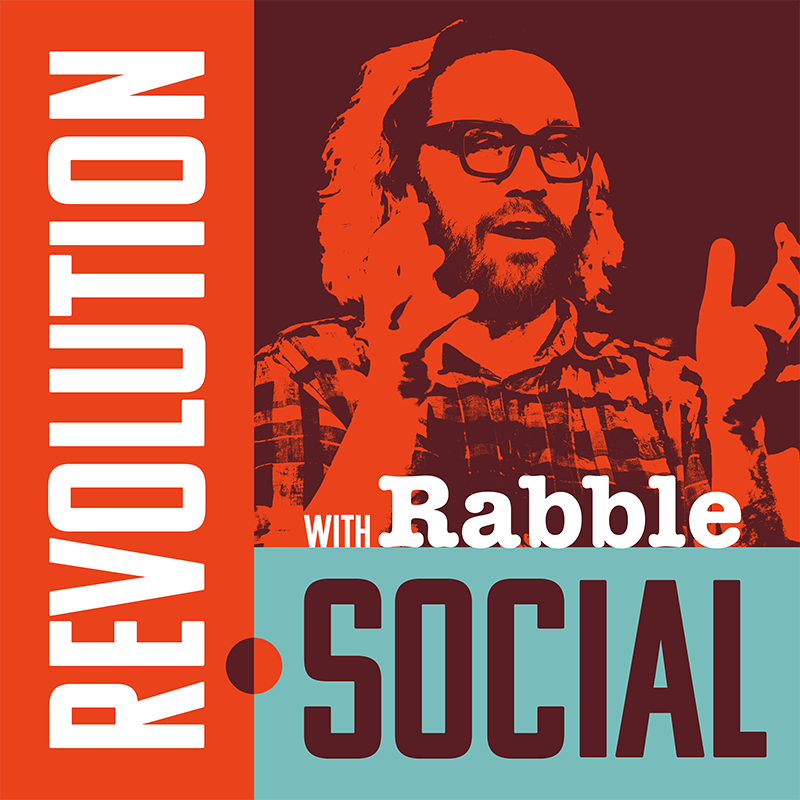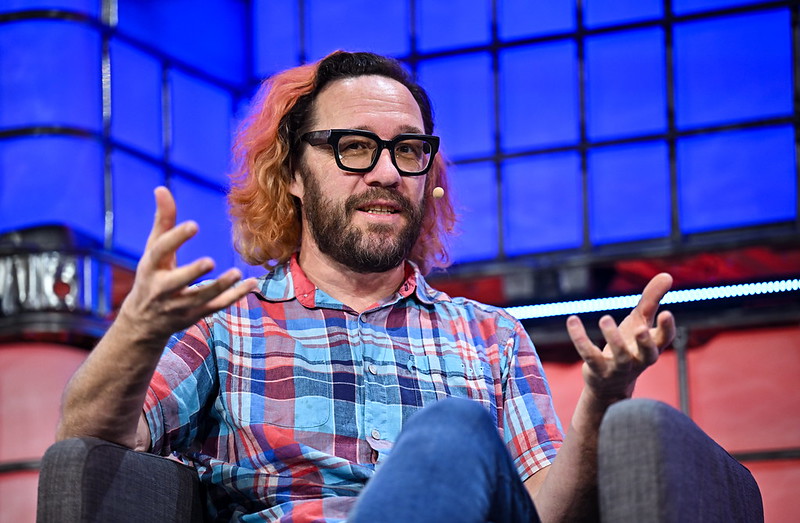PODCAST
What's Next For Social Media?
Revolution.Social is a podcast about the future of social media built on permissionless open protocols. It's hosted by Twitter's first employee, Rabble a.k.a. Evan Henshaw-Plath.
The first episode is an exclusive interview with former Twitter CEO Jack Dorsey — whom Rabble hired.
Hear what's possible when social platforms and content are no longer owned by corporations.

About the Podcast
Building on the foundation of a new Social Media Bill of Rights, this podcast will explore how permissionless open protocols can replace corporate platforms to create a truly democratic digital commons.
We'll feature conversations with activists, technologists, and community leaders, including Jack Dorsey, Kara Swisher, Yoel Roth, Renee DiResta, and Cory Doctorow to seek their input on protocol-based social networks that would enable collective action and social transformation without requiring permission from centralized authorities.
The right to:
- 1Privacy and security
- 2Own and control your identity
- 3Choose and understand algorithms
- 4Community self-governance
- 5Full portability
Episode 1: Jack Dorsey on Twitter's Evolution
Twitter never should have been a traditional tech company, says Twitter co-founder and former CEO Jack Dorsey. Instead, it should have been designed as a protocol — like email, or podcasting.
"That was the pure expression of it from day one," Dorsey says. "And it was never really allowed to be that because it was on this fast track to becoming a public company."
Today on Revolution.Social, Dorsey explains why it's still possible to build a successful business on top of open protocols and decentralized social platforms like Nostr. He and Rabble also discuss why Jack doesn't regret encouraging Elon Musk to buy Twitter; why he left Bluesky; the problem with centralized AI firms; and the evolution of cryptocurrencies such as Bitcoin.
Watch Short Clips
Episode 2: Kara Swisher on Social Media's False Idealism
The founders of social media companies like Facebook and Twitter never cared about the lofty ideals they claimed, says longtime tech journalist and podcaster Kara Swisher.
"I never thought they were idealistic. I thought they were there to make money," she says.
Swisher, who co-hosts Pivot and also hosts On with Kara Swisher, likens tech giants to the Borg from Star Trek, constantly absorbing smaller companies to fuel their growth. But she sees potential for better user experiences and moderation tools in some platforms, such as Bluesky and Reddit.
Today on Revolution.Social, she and Rabble also discuss how letting users moderate their own communities can create healthier online spaces; why cell phones should be banned in school; and the silver lining of Elon Musk's Twitter takeover.
Watch Short Clips

About the Host
Evan Henshaw-Plath (rabble)
Evan Henshaw-Plath, known as "rabble," is an activist and technologist passionate about building commons-based social media apps that prioritize equity and sustainability.
As the head of the tech team at Odeo when Twitter was created, rabble has unique insights into how social media platforms evolve and the values that shape them.
He was most recently the Founder and CEO of Verse Communications, a public benefit corporation, where he built protocol-based social networks created, run, and sustained by the communities of users. His work spans projects like Planetary, Scuttlebutt, and various open protocol clients.
Through revolution.social, rabble will explore how we can replace corporate platforms with permissionless open protocols that empower people to organize, connect, and create revolutionary change together.
Topics We'll Explore
The podcast will dive into these key areas that are essential for building a permissionless, protocol-based digital commons that empowers people and communities.
Reimagining Social Media
Why we need to start over with permissionless protocol-based social media and how it can enable revolutionary change.
Privacy & Security
How open protocols can provide better privacy and security than centralized corporate platforms.
Self-Sovereign Identity
The power of controlling your digital identity in protocol-based networks and its role in authentic connection.
Transparent Algorithms
Why open-source recommendation algorithms are essential for democratic information sharing.
Community Governance
How permissionless protocol-based systems enable true democratic governance of digital spaces.
Data Portability
The technical foundations of data portability in open protocols and why it matters for user freedom.
Building the Future
Practical steps toward building protocol-based social networks that can make revolution possible without gatekeepers.
